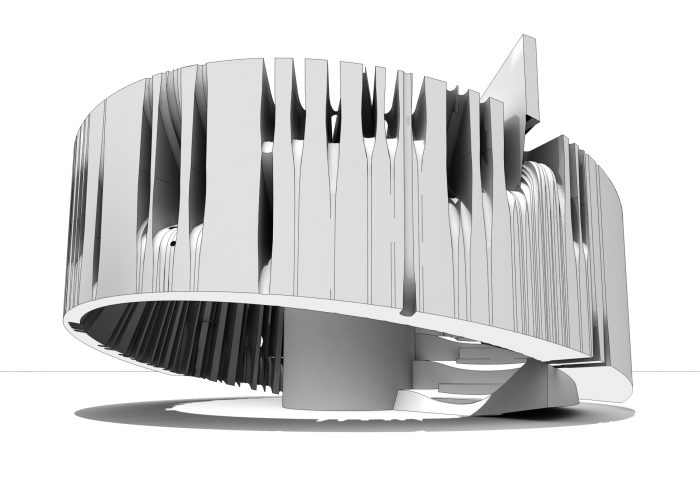Joshua G. Stein Presents Casting Lessons at the Graham Foundation
Professor Joshua G. Stein presented his research on casting techniques and the recuperation of traditional craft into architectural digital fabrication at the Graham Foundation. In “Casting Lessons” he examined how material technique might offer methods for grounding the often disembodied discussions around digital form making, historical style, and urban data-scapes. Stein’s work was presented in conjunction with the exhibition “Poured Architecture: Sergio Prego on Miguel Fisac.”
Stein presented at the Graham Foundation’s Madlener House. Since 1963, the Graham Foundation has been located in the 9,000 square foot Prairie-style mansion located in the historic Gold Coast neighborhood of Chicago. In Poured Architecture, the exhibition established a dialogue between the late Spanish architect Miguel Fisac and the contemporary work of the Basque-born, Brooklyn-based artist Sergio Prego. Through a new body of work supported by a Graham Foundation Fellowship, Prego explores the possibility and synchronicity of materials and processes across architecture and visual art in a new series of sculptures and drawings inspired by Fisac’s innovative architecture and construction techniques.

Joshua G. Stein is the founder of Radical Craft and the codirector of the Data Clay Network (www.data-clay.org), a forum for the exploration of digital techniques applied to ceramic materials. Radical Craft (www.radical-craft.com) is a Los Angeles-based studio that advances an experimental art and design practice saturated in history, archaeology, and craft. Stein is author of Trajan’s Hollow (ORO Editions, 2019), which examines the role of craft and reproduction in the era of digital scanning and fabrication. He is Professor of Architecture at Woodbury University where he also directs the Institute of Material Ecologies (T-IME). He is the 2019–20 Mitchell Visiting Professor of Architecture at the School of the Art Institute of Chicago.
Graham Foundation
Founded in 1956, the Graham Foundation for Advanced Studies in the Fine Arts fosters the development and exchange of diverse and challenging ideas about architecture and its role in the arts, culture, and society. The Graham realizes this vision through making project-based grants to individuals and organizations and producing exhibitions, events, and publications.